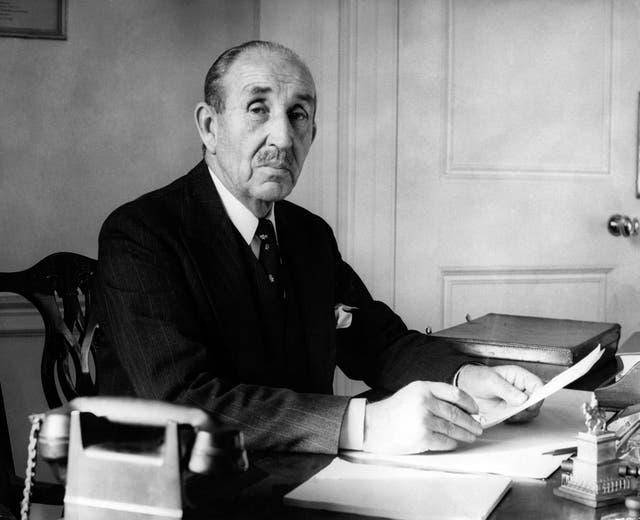NI government was warned off building nuclear power plant at Lough Neagh
The UK’s Atomic Energy Research Establishment assessed the feasibility of the proposal in the late 1950s, archives show.

The Northern Ireland government was warned against proposals to build a nuclear power station beside Lough Neagh, archive files show.
The feasibility of the proposal was assessed by the Atomic Energy Research Establishment (AERE), a UK government body that was responsible for research on, and development of, nuclear power.
The Stormont government had been assessing the potential for a nuclear power plant in Northern Ireland in the 1950s and the shores of Lough Neagh, the UK and Ireland’s largest freshwater lake, had been identified as a possible location.
However, the AERE advised against this site, raising concern about water contamination in the event of an accident, particularly given that the lough was to be increasingly used as one of the main sources of water for Belfast.

The document, marked confidential, is in archive files newly released from the Public Records Office of Northern Ireland.
In began by noting that an assessment of the “siting problem” in Northern Ireland had been conducted by a body called the Reactor Location Panel two years earlier, in 1956.
He added: “We consider that the situation has been materially changed by the suggestion that Lough Neagh may within 15 years or so be an important source of water supply for Belfast.
“This has made us considerably less happy about the choice of Lough Neagh for a nuclear power station site.
“I do not think that any radiological hazard would result from normal operation of the power station since discharges of weak radioactivity from cooling plant would be kept well below the level acceptable for drinking water.
“We have however to think of the possibility of an accident leading to over-heating of the reactor and some release of radioactive products.
“Everything possible is done in design to minimise such risks and the chance of such an accident is remote.
“If in spite of all precautions a substantial release of radioactivity occurred as a result of an accident, pollution of the waters of the Lough might occur, necessitating this source of drinking water being unavailable for several months. Fishing would also be interfered with.
“Although the possibility of this is slight I do not consider that Lough Neagh should be chosen unless there is no coastal site available.
“When I visited Northern Ireland last May I saw a sea lough north of Belfast (Belfast Lough) which appeared to have a power station sited on it.
“The cost of transmission from such a site to Belfast could not be very high.
“I would suggest therefore that a serious investigation be made of possible coastal sites and that Lough Neagh should not be used.”





